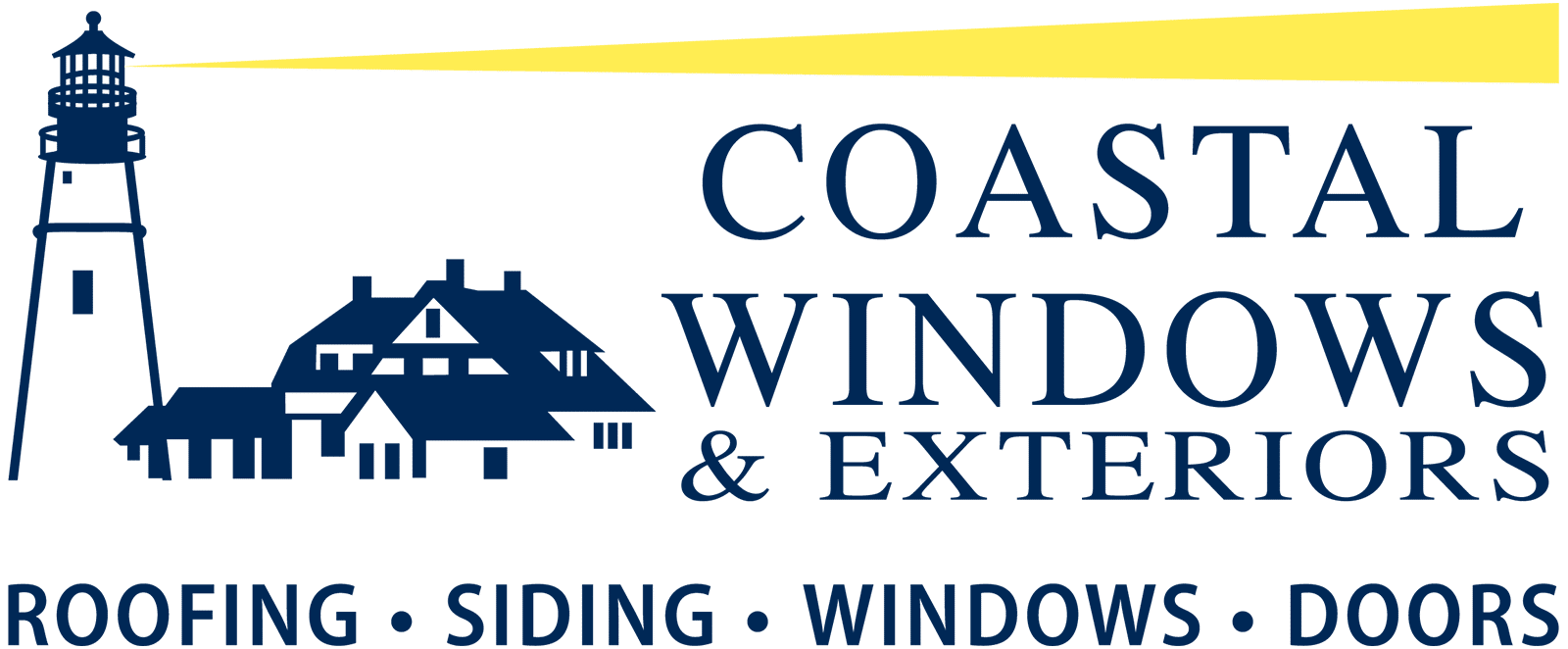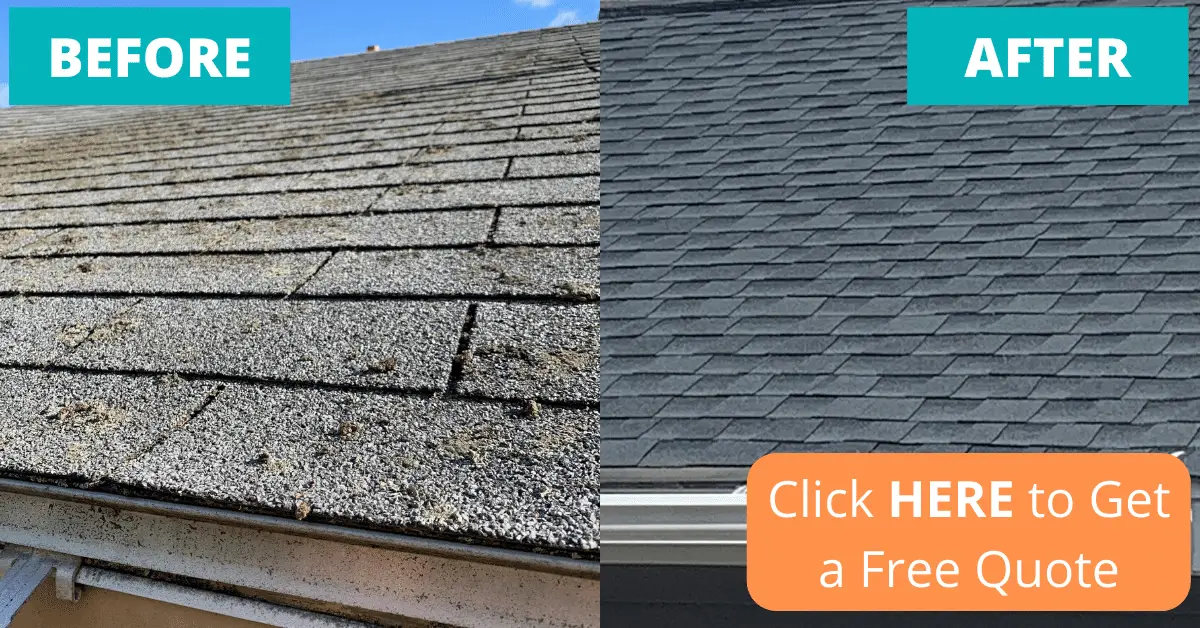While natural exterior elements such as wood or stone are beautiful, they can also come with a lot of maintenance and high repair costs if they become damaged. Luckily, there are many ways to make your home more eco-friendly while improving curb appeal.
Vinyl is one of the top options for eco-friendly remodeling, including siding and windows. Meanwhile, other eco-friendly materials are fantastic for exterior products including fiberglass entry doors and asphalt roofing.
What should New England homeowners consider with ways to make an eco-friendly home? When it comes to your home exterior project, there are many considerations to consider, such as the following.
Best Eco-Friendly Siding for the New England Climate
Vinyl supports environmental safety because manufacturers make it from natural ingredients. According to the Vinyl Siding Institute, they use 57% chlorine derived from common salt and 43% ethylene sourced from natural gas.
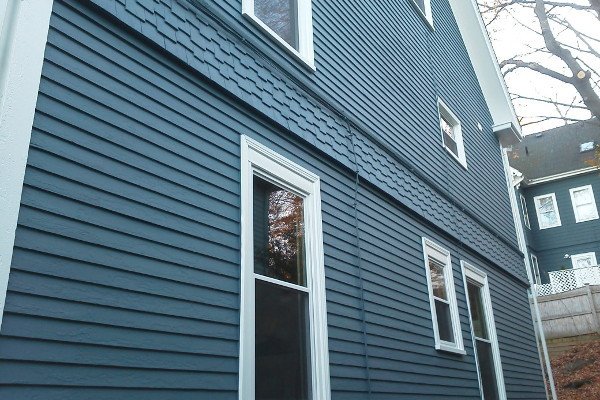
Vinyl siding installation can help improve the appearance of the home while saving energy dollars. However, according to House Logic, it’s also one of the best exterior siding options in terms of sustainability. This is one of the best ways to make your home more eco-friendly!
How Does Vinyl Siding Installation Impact the Environment?
This depends on the energy efficiency ratings of the vinyl siding. Energy-efficient foam-backed vinyl siding can lower utility bills, which results in using less energy to heat and cool the home.
For example, standalone vinyl panels likely will not impact energy savings very much. This isn’t the best approach for reducing heat transfer or blocking cold or warm airflow between the panels and the exterior. Traditional vinyl siding may also rattle in the wind and even appear wavy.
The best eco-friendly siding is crafted by using insulated foam-backed vinyl siding with housewrap. Housewrap is a thin membrane that protects the home from losing heat, in some cases it can insulate down to the wood studs of the home. Wood studs are poor insulators on their own and can easily allow heat to pass through them.
While housewrap can help reduce energy consumption, foam-backed insulated siding is the key to enhancing energy savings in the home. This insulation is designed to block air circulation that can affect the indoor comfort levels of the home. It increases the R-Value of the product, provides sound control properties, and keeps utility bills low.
Other Ways That Vinyl Siding is Eco Friendly
Aside from saving energy, vinyl exterior also is environmentally friendly as it is a green building material. Throughout the process of manufacturing, transportation, installation, service life, and waste management, it beats fiber cement and brick while rivaling cedar siding.
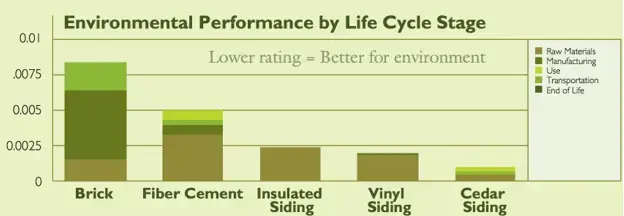
This chart supplied by Vinyl Siding Institute shows how vinyl siding compares to other options in terms of important environmental criteria. Compared to other types of house siding, it uses small amounts of energy for manufacturing and it requires less water to engineer—especially when compared to fiber cement.
Vinyl also emits very few toxic chemicals. For example, stucco and fiber cement emits considerable amounts of mercury during the manufacturing process.
Furthermore, fiber cement contains silica, which is a cancer-causing agent. According to the Center for Disease Control and Prevention, dust from fiber cement siding is linked to lung cancer.
Eco-Friendly Windows: Why Vinyl is the Top Choice for Sustainability
Similar to vinyl siding, vinyl window replacement is also one of the best ways to make your home more eco-friendly. According to the American Architectural Manufacturers Association, over 1 billion pounds of vinyl scraps have been recycled in just one year.
Furthermore, there are vinyl window scrap buy-back programs that will take old vinyl windows and recycle them. This act has led to more than 8 million pounds of vinyl window waste entering the landmines.
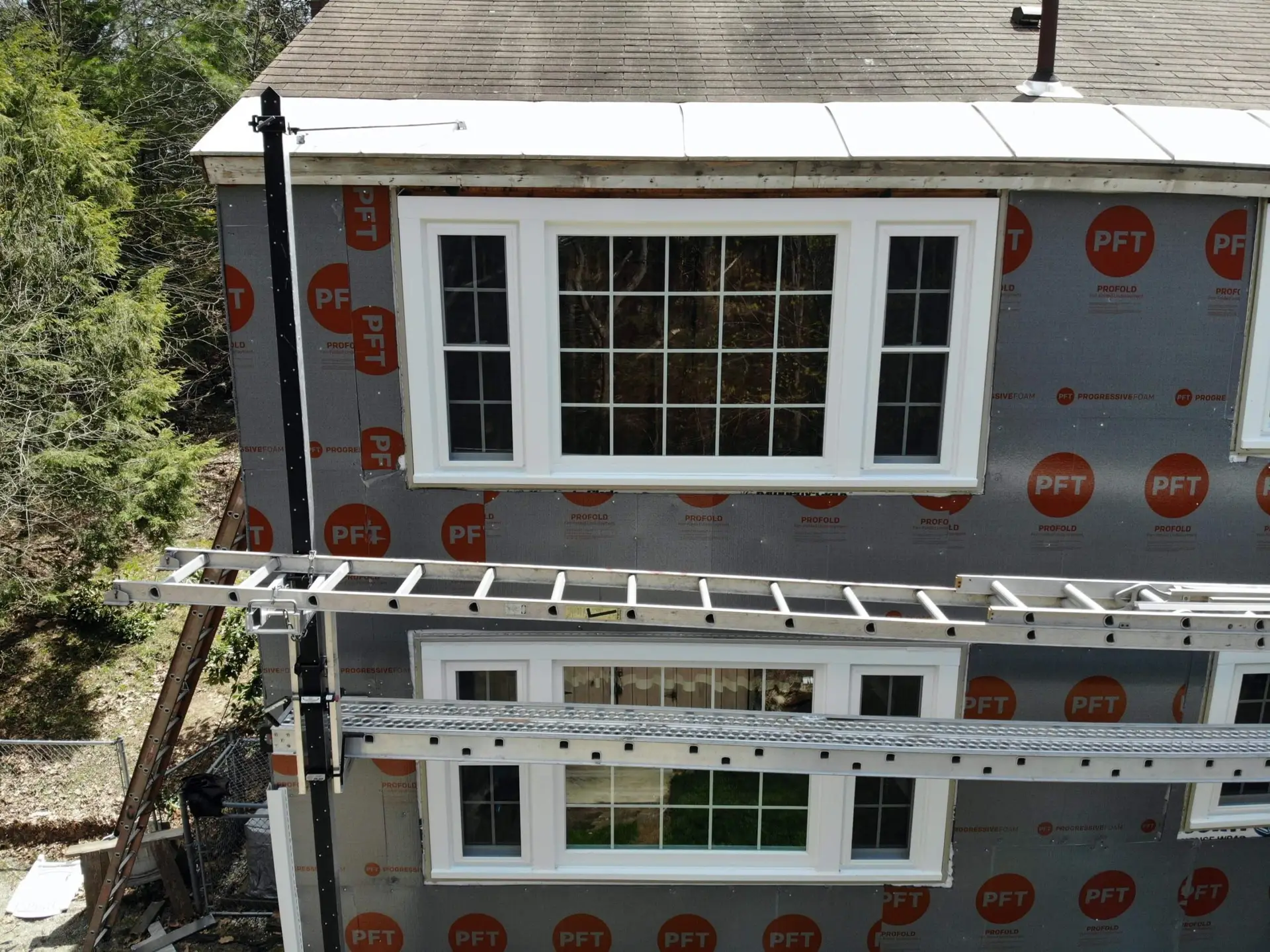
Home windows are one of the most environmentally-friendly products on the market. This is especially the case with windows that are certified by Energy Star, which means they use technologies to conserve energy.
Energy Efficient Technologies for Eco-Friendly Windows
What technologies do you need to consider for eco-friendly windows? Especially for New England homeowners, you’ll need to consider the following:
- Energy Efficient gases such as argon and krypton gas increase thermal efficiency. These are odorless gases that are inserted between the glass panes during the manufacturing process. They reduce heat transfer and allow for another level of insulation in your home. These gases help prevent your HVAC system from running in overdrive.
- Low-e is applied to the glass to reduce heat transfer that’s catered to our climate zone. It also reflects infrared light that keeps the home comfortable in extreme heat or cold.
- Quality vinyl windows frames with foam fill inside the cavities, providing additional insulation against New England’s fluctuating temperatures.
- Fusion-welded frames with no weep holes.
- Dedicated fusions and step jams.
- Expert window contractor installation, ensuring an air-tight seal while reducing drafts.
- Consider windows with the lowest air infiltration rating possible. This is especially true for the winter season when drafts are the most noticeable in your home. Homes with low air infiltration ratings are engineered to keep your home as airtight as possible.
Eco-Friendly Doors
Looking for more ways to make your home more eco-friendly? Vinyl isn’t the only material that’s ideal for eco-friendly home improvement tips. Fiberglass doors are another sustainable choice. Fiberglass typically does not require added materials for reinforcement, which reduces its weight and transportation cost. Its thermal expansion allows it to seal out the elements and help keep the home more energy-efficient.
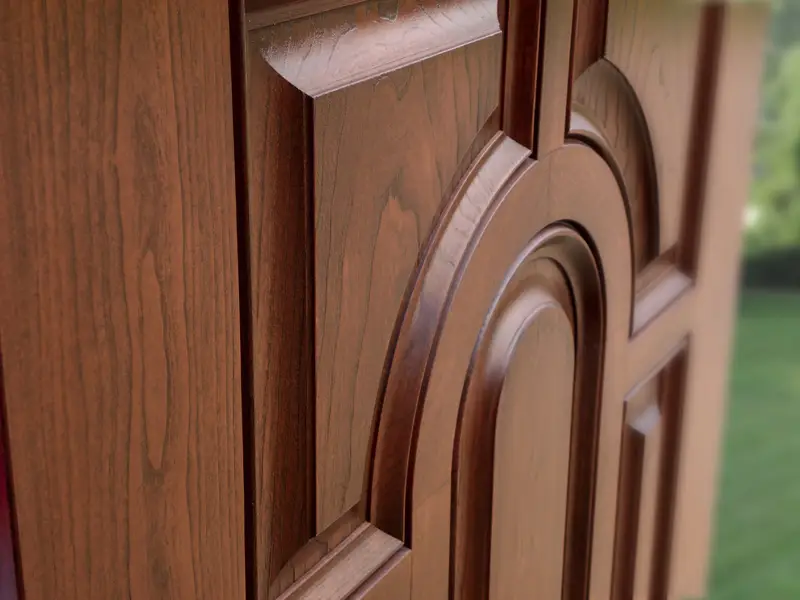
Fiberglass is also an ideal alternative to traditional wood entry doors. Wood doors consume precious natural resources and require long-distance transportation. For example, if manufacturers harvest the wood from forests in Oregon, the process already uses a significant amount of energy before production even begins. After manufacturing the doors, companies must then ship them to your home.
Did you know that fiberglass entry doors provide excellent insulation properties for your home? These doors protect against drafts, reduce heat loss, and keep your home cozy. In the winter, they help reduce the amount of heat that escapes from your home, keeping it at a more comfortable temperature.
In addition, fiberglass entry doors require little maintenance, making them a smart choice for homeowners who do a lot of their own upkeep. These doors can last for over 30 years, making them a smart investment for your home’s future.
Meanwhile, a polyurethane foam core and precision-engineered triple weather stripping further block out drafts. As this keeps your home at a comfortable temperature, you won’t need to run the HVAC system around the clock.
Lastly, fiberglass has a long life cycle that keeps it out of the landfill. It is not prone to rotting, peeling, or denting, which reduces the need to use paint or wood stain. Front doors don’t get any more friendly than fiberglass!
Ways to Make Your Home More Eco-Friendly with Roofing
Is asphalt roofing eco-friendly? In terms of home performance and longevity, asphalt is an excellent material for eco-friendly roofing!
Asphalt roofing is much more than a layer of shingles. Total roof replacement is the best way to ensure maximized performance and energy savings. Replacing the entire roof involves installing a new roofing system. With a roofing system, you’ll receive better performance with roofing elements including:
- Leak barrier protection: creates a seal to block water from vulnerable areas of the roof such as the valleys and chimneys.
- Synthetic roof deck protection: Provides a second layer of protection to defend against roof rot.
- Starter strip shingles: Prevents shingles from blowing off the roof.
- Lifetime shingles: Top-of-the-line shingles that are designed to last a lifetime and provide the best value. High-quality asphalt roofing can yield a return on investment of 72%, which is higher than the national average at 68.4%.
- Ventilation: Ventilation is essential to the health of a roofing system. Without adequate airflow, energy bills can skyrocket and roof shingles can become damaged during hot weather.
Best of all, asphalt roofing is recyclable! In fact, GAF roofing aims to use up to 90% of old asphalt roof materials. Since 2022, GAF has diverted 15,000 lbs of asphalt roof waste from entering landfills.
Coastal is a Certified GAF Green Roofer Contractor
GAF is certified through GAF as a Green Roofing Contractor. Launched in 2010, this program requires roofers to pass a written test while completing a Sustainability Assessment. We commit to the recycling of shingles while joining the local chapter of the USGBC. The program includes parters such as Construction Materials Recycling Association and the U.S. Green Building Council.

Hardie Siding: A Green (& Gorgeous!) Exterior Cladding Option
Yet another eco-friendly siding to consider is James Hardie. Crafted from raw and sustainable materials, James Hardie is the perfect solution for improving your curb appeal while lowering your carbon footprint.
Hardie is sustainable because it’s made from elements such as water, sand, wood fiber, and cement. It does not contain asbestos, glass fibers, or formaldehyde.
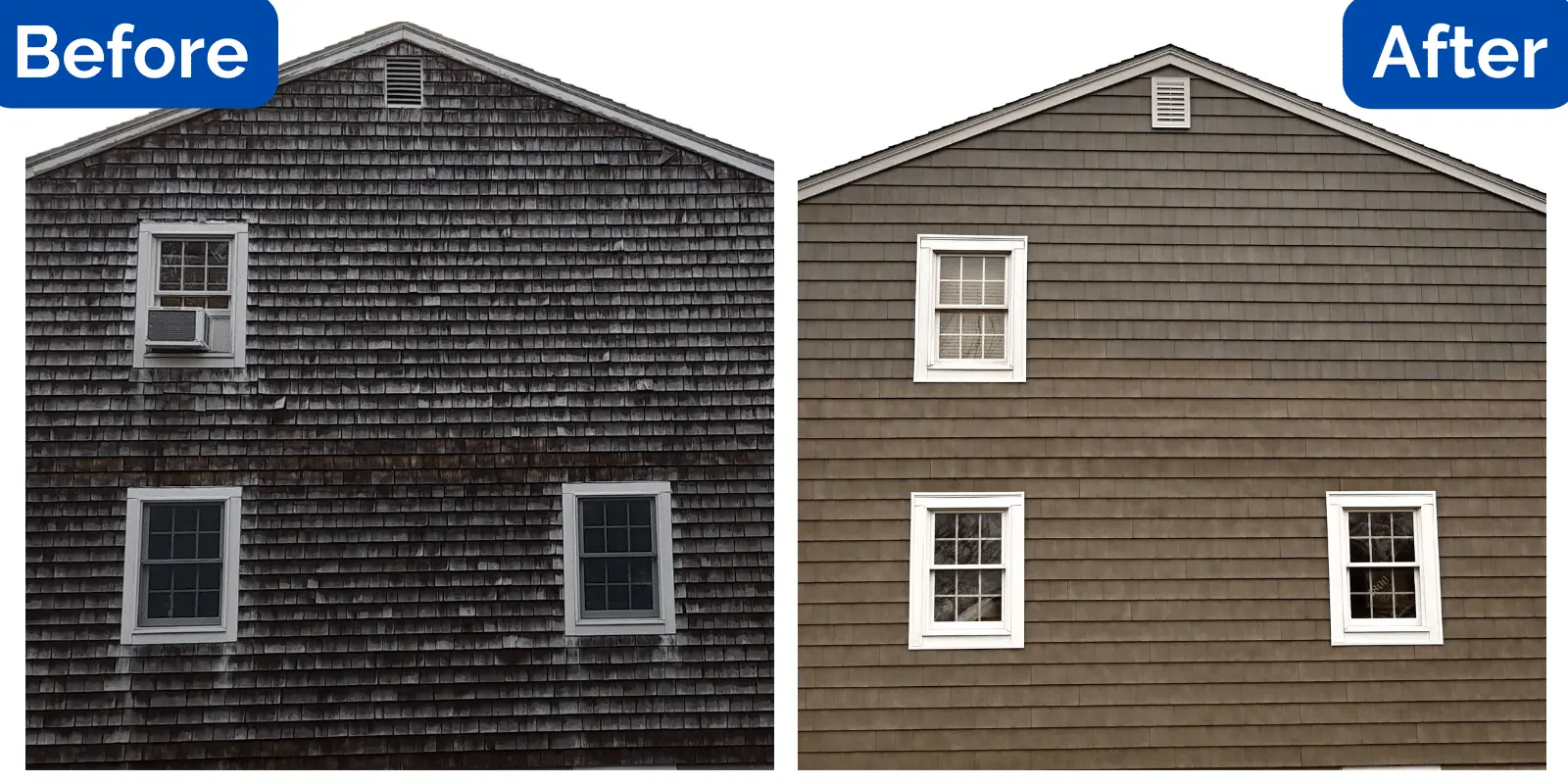
With low toxic materials, James Hardie is a wonderful cladding for the environment. While it uses wood fiber, the amount is still significantly less than what you’ll find with real wood siding. This means there are fewer trees harvested and fossil fuels used for transportation.
Fun fact: James Hardie was named the Greenest Siding Brand in the Green Builder Media Annual Reader’s Choice Survey for 2020. How’s that for a sustainable siding option?
Find Eco-Friendly Exterior Remodeling Choices & Home Improvement Tips at Coastal Windows & Exteriors
Coastal Windows & Exteriors offers replacement windows, siding, roofing, and exterior door replacements in MA. Our products are energy-efficient, environmentally friendly, and custom-made for your home.
Contact us today with questions for additional home improvement tips or a quote at svanderbilt@mycoastalwindows.com or call 978-304-0495.
